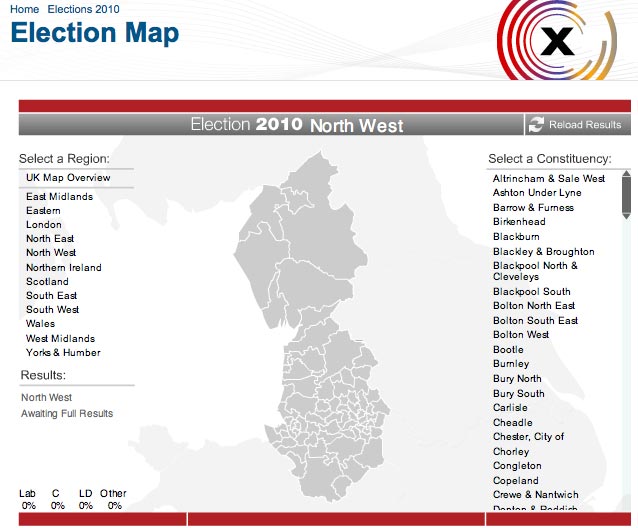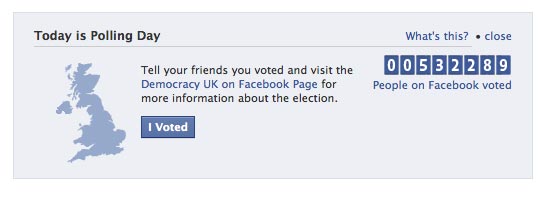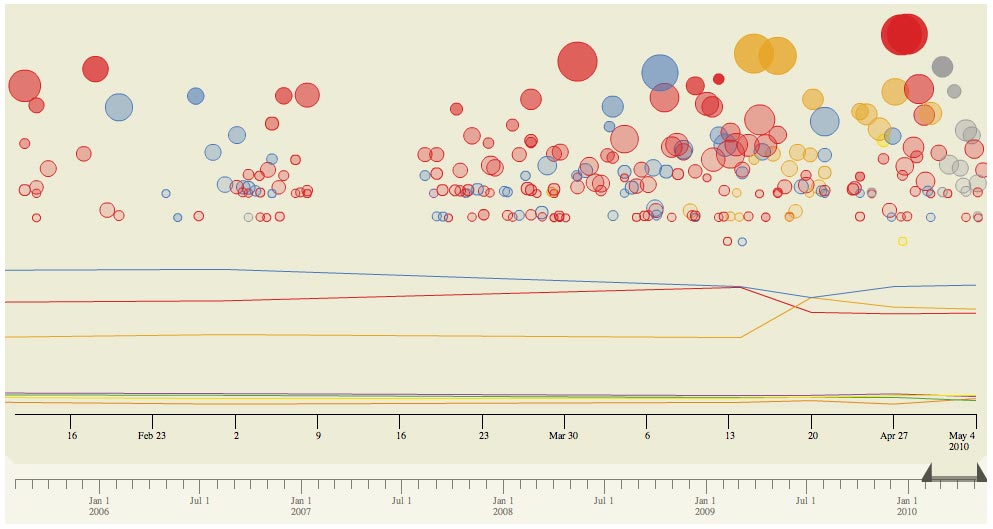As live events go, election night has to be one of the biggest opportunities for journalists and news organisations to get tweeting, liveblogging, mapping and more. Here’s our guide to the best online coverage of election day and plans for tonight’s results, as we look at what journalists’ can learn for future live events and how readers (and voters) are being kept informed:
Produced in associated with Channel 4 and the New Statesman, Guardian.co.uk’s election coverage features a map plotting voter turnout. It’s reliant on people tweeting when they’ve voted with the first half of their postcode and the #ukvote hashtag, but gives a good real-time picture of where the votes are coming in from.
The goal of the experiment is to inspire more people to vote and to help get a sense of turnout during the course of the day and across the country. Channel 4 News is also trying to gauge turnout using a poll as part of its election day liveblog, which dominates its homepage today.
The Guardian has also changed the layout of its homepage to incorporate more election coverage – particularly like the way it highlights the latest updates from its election day liveblog as part of the top stories box.
Ahead of tonight’s results the Telegraph has a handy guide to when constituencies will be declaring and which party is targeting which seats.
The BBC has its live page up and ready for tonight and is promising to use all its multimedia resources to boost its online coverage, with a liveblog of the results for those following online and on mobile and streams of the best radio and TV footage from the BBC via the website. Particularly nice is the slideshow of how to vote – the practicalities not which party to vote for and the option to download an election night party pack.
As part of extensive election night coverage online, Sky News has a handy, hour-by-hour guide of what happens on election day and has Facebook chat around the election added to its liveblog, so users can post status updates from the Sky site.
The Financial Times is hosting an election special on its Westminster blog for election day; while the Times’ group blog Election ’10 is worth a mention for today’s blow-by-blow coverage and its offering of analysis, news and commentary throughout the election campaigns, balancing live and need-to-know with deeper commentary.
The Liverpool Daily Post has an excellent election section and its election map that will show the results for its local seats as they come in is a great feature. This set-up is being used by other Trinity Mirror titles too, including the Birmingham Post and Mail titles, which have also adopted the group blog Party Central for local politicians set up by the Liverpool Post & Echo:

The hyperlocal election:
We’ve written about the opportunities for hyperlocal, independent news sites in covering the general election and its seems tonight will be no exception. Expect liveblogs – Sunderland blog SR2 Blog is hoping to be one of the first sites to report a results, while Blog Preston has recruited student bloggers for the task; and live tweeting – new site for Manchester Inside the M60 will be tweeting the results live and posting them to the site as soon as they come in. Let us know if you’re planning something special for tonight or trying out some live reporting for the first time in the comments below.
Non-news sites:
Tweetminster gives an unrivalled view of tweeting going on during election day, filtering tweets from politicians and prospective parliamentary candidates, as well as mapping voter turnout by tweet and trending topics.
Facebook has set up a live vote count showing how many Facebook users have said they’ve voted, as well as pulling in news updates from external sites and polling users on its Democracy UK page.

And finally, if just for fun, a picture of how tweeters are aligned by party from @jaygooby.
If you’re a journalist, blogger or just an interested party let us know how you’re reporting and following election night as it happens.


